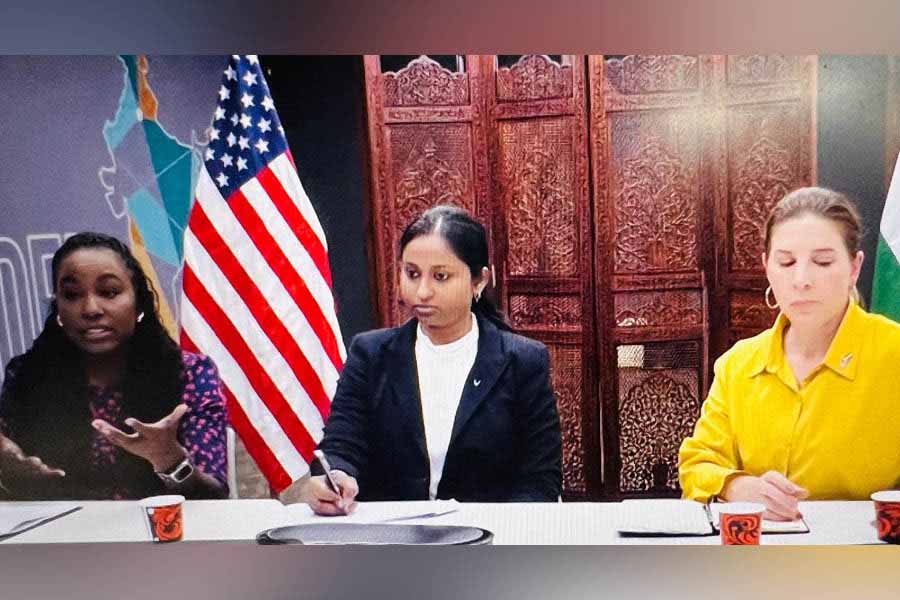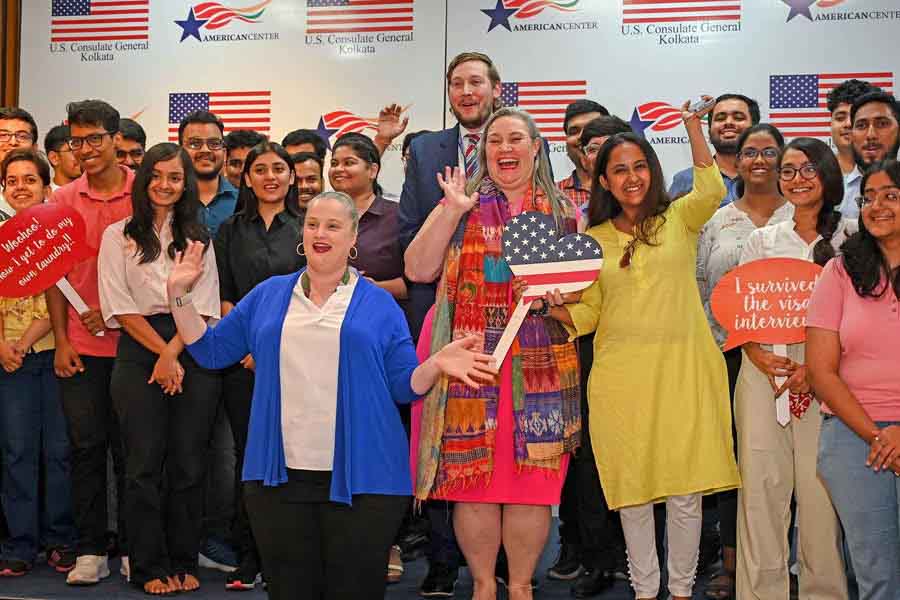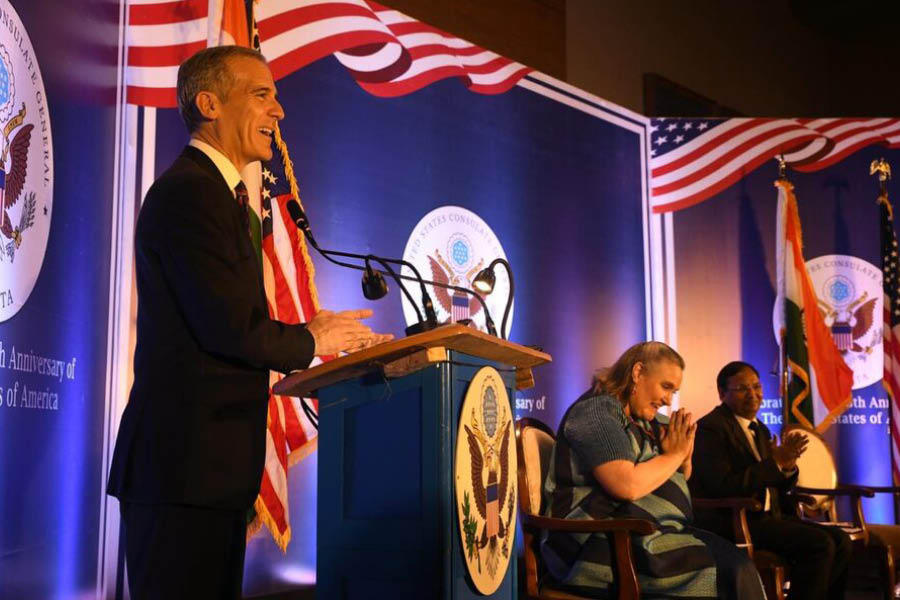In a world that is seeing the increasing impact of artificial intelligence (AI) in several facets of life, conversations regarding the pros and cons of AI as well as its use in daily life and the impact it has on our decision-making is of great essence. To engage in conversations about how AI is here to stay and how it is impacting matters of crucial importance like elections, the American Center hosted a virtual debate to bring AI to the forefront.
On September 12, Alison Williams, a Republican, and Dasheika Ruffins, a Democrat, took part in a debate at the American Center in New Delhi which was virtually broadcast to the American Center in Kolkata. The speakers not only shared their views on how AI has become an unmissable facet of the 2024 Presidential elections but also took some questions from the audience who expressed their concerns about data privacy, deep fakes and an era of post-truths. The session moderated by Simi Mehta, Fulbrighter, saw 100 students from Presidency University, Jadavpur University, Loreto College and Adamas University engage in a thought-provoking session that gave an idea of how AI would look in the future in context to election.
The voice of the Republicans on the debate was Alison Williams who served from 2016- 2023 as the chief of staff to Arkansas governor Asa Hutchinson. Williams also has experience of working with the US departments of justice, homeland security and defence. Dasheika Ruffins with over 20 years of experience as an attorney, advocate and political operative who is currently the global head of community engagement and DEI Strategies for Google was the Democrat representative. Ruffins boasted further experience given her domain in Obama for America and Hillary for America amongst several other electoral campaigns.
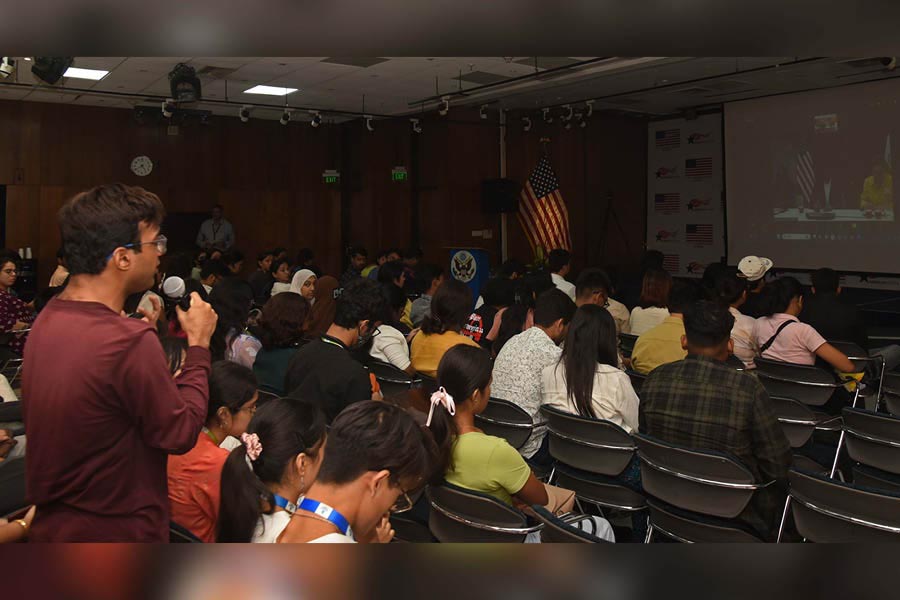
The students at American Center Kolkata pose some serious questions to the speakers Suvendu Das
While the debate went on with discussions about different uses of AI during the elections, one of the questions raised by moderator Simi Mehta was how given that 78 per cent of new voters are on social media platforms like TikTok, Instagram and Snapchat, how likely would it be that AI be used as a tool to manipulate and influence new voters to swing one way or another based on false or misinformation.
Dasheika Ruffins agreed and said: “It’s kind of embarrassing that we knew that this was happening and we are still not quite prepared for this. AI is being used and any other methodology. The quickness with which it is used to spread any kind of information and more so misinformation. We have seen how fake news stories are being pushed in the form of screenshots and that is scary because it looks so real. It’s a problem we’re going to continue seeing. I think it is creating a distrust in our election process and election system which is a larger conversation that we’re having that we have to get a hold of.”
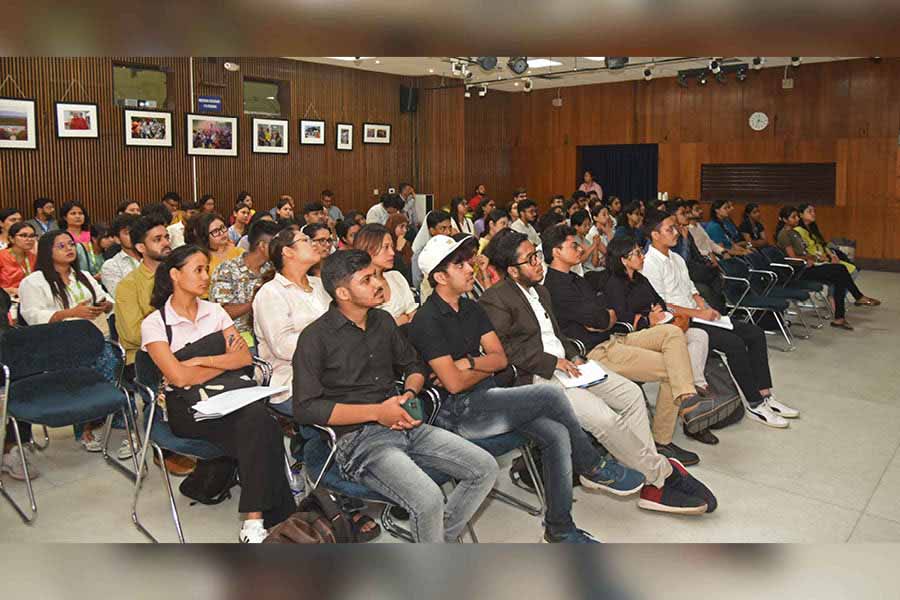
100 students from different institutes were present for the debate on AI and its effect on the US elections Suvendu Das
Alison Williams was asked about the seriousness of cloning of voices and video manipulation that has become so readily accessible to which she said: “It does concern me but I am equally concerned about curbing the power and beneficial uses of AI. It is a struggle and the tension that we see in the United States now is how you regulate AI or other new media without dampening the beneficial uses of it. I go back to the strong freedom of speech we hold in the United States, is such an important piece of what we do to then regulate AI. I don’t like the use of cloning tools for voice and video manipulation since it is very harmful in spreading misinformation but I also don’t believe that AI should be completely restrictive so that we cannot use it for positive reasons.”
A Phd student from Presidency University asked the panelists if there were any conversations in the United States regarding the implementation of federal regulations and guidelines on the use of AI in political campaigning and advertising and if we were entering an era of post-truth with the sophistication and use of AI. Taking the question, Dasheika Ruffins said: “There are two bills right now that are being discussed in Congress but it hasn’t made it past both Houses yet. Since we are in the election period the conversations are subtle. The discussions are around Accountability Act and the Algorithm Act, both of which are aimed to make sure that there’s fairness, transparency, accountability and AI mechanisms specifically when it comes to elections and political advertising.”
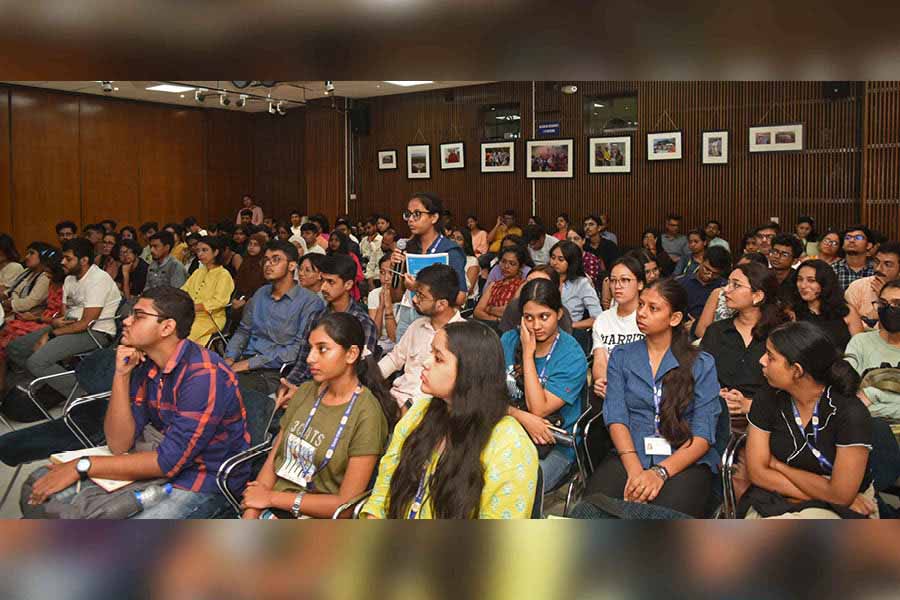
From post-truth to data privacy and manipulation using AI, the debate and discussion was filled with major concerns about the changing face of technology Suvendu Das
Alison Williams, the Republican, spoke about the post-truth era and said: “Well. I think my party is generally accused of this more. I think the era of post-truths and whether we have entered it or are entering it or are in danger of entering it is the same I would say about deep fakes. I wanted to parse this out just a little bit because facts are facts and the truth is the truth. What we have now at times is some political candidate who will refuse to acknowledge something that they did or they said. Theoretically post-truths are nice like deep fakes. It’s a nice easy encapsulation for us to think about. But the reality is that these things, as many complex things, deserve much greater attention dn discussion in society and with regulators to make sure that they really meet a mark that protects both free speech and the security of Americans.”
